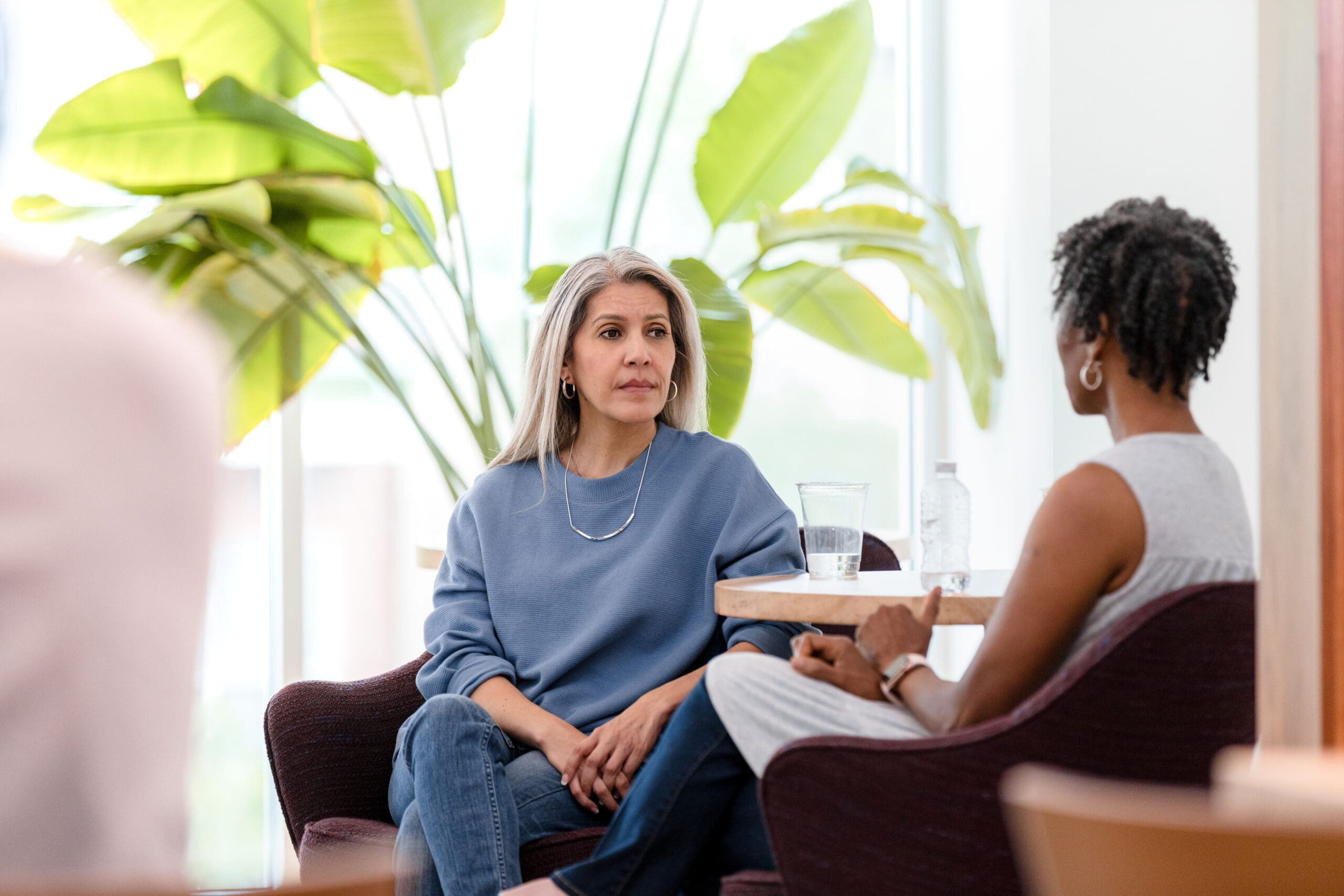Cognitive Behavioral Therapy Benefits for Mental Health Disorders
Read on to learn more about cognitive behavioral therapy benefits for different mental health disorders. To learn more about cognitive behavioral therapy treatment in New Jersey, contact our admission office for more informations.

What Are the Benefits of Cognitive Behavioral Therapy (CBT)?
Mental health disorders can affect anyone, regardless of age, gender, or background. If you or someone you know has a mental health disorder, treatment options are available to help make sure you get the assistance you deserve.
An effective treatment for mental health disorders is cognitive behavioral therapy (CBT). There are multiple cognitive behavioral therapy benefits for mental health disorders.
How Can CBT Help?
CBT is a type of talk therapy. It focuses on correcting negative thought patterns and behaviors. It is one of the most widely used and evidence-based forms of psychotherapy. It has been shown to have numerous benefits.
Here are some cognitive behavioral therapy benefits:
- It is an effective treatment for mental health disorders
- Generally a shorter-term treatment
- Focuses on the present and creating positive mindsets
- Collaborative and structured
- Empowering and skills-based
- Versatile and can be tailored for most any disorder or situation
How Does CBT Compare With Other Types of Talk Therapy?
CBT vs. Various Therapeutic Practices
- Psychodynamic Therapy: Psychodynamic therapy explores unconscious thoughts and feelings, while CBT focuses on changing negative behavioral patterns. Cognitive behavioral therapy benefits people with more urgent concerns.1
- Humanistic Therapy: This therapy focuses on the client’s experience and seeks to improve positivity and genuine care. CBT deals with negative behaviors as well.
- Dialectical Behavioral Therapy (DBT): DBT is a treatment that improves relationships. It also helps in developing coping mechanisms. DBT is useful for those with difficulty in managing relationships.
- Motivational Interviewing (MI): CBT will address negative thoughts and behavioral patterns, while MI increases the motivation to change.
- Existential Therapy: This addresses the perception of purpose, meaning, and mortality. It helps with more overarching concerns about life than CBT does.
CBT offers a practical approach for clients who need a more goal-oriented package.
Physicians consider the cognitive behavioral therapy benefits and then compare them to other options before selecting a treatment option for a patient.2
Cognitive Behavioral Therapy Benefits for Anxiety Disorders
Anxiety disorders are mental health conditions with intense feelings of worry, fear, or panic. The symptoms associated with these conditions can be psychological and physical. They also vary depending on the type of anxiety disorder that is present.
How Does CBT Help With Anxiety Disorders?
CBT helps individuals to identify negative behaviors, which may include self-doubt and comparison.
Then, CBT aims to help individuals work through negative behaviors, meaning that engaging in enjoyable activities can improve anxiety symptoms. This process is “behavioral activation.”
CBT vs. Medication Management
CBT is often as effective as medications in the management of anxiety disorders. It reduces symptoms and provides a cost-effective alternative.
Cognitive behavioral therapy benefits may also last longer. They also have lower rates of relapse compared to strict medication use.
Cognitive Behavioral Therapy Benefits for Mood Disorders
CBT for Major Depressive Disorder
Another mood disorder is major depressive disorder, which is associated with intense waves of sadness and fatigue.
Other types of mood disorders include cyclothymia, persistent depressive disorder, and medication-induced mood disorder.
Only some patients with mood disorders may enjoy cognitive behavioral therapy benefits. It depends on their symptoms and their willingness to commit to therapy.
How Does CBT Help With Mood Disorders?
CBT identifies and corrects behaviors. This may also include negative perceptions.
Many individuals can enjoy cognitive behavioral therapy benefits. CBT is an effective therapy for mood disorders. Cognitive behavioral therapy benefits increase with medications or other techniques.
How Does CBT Help With Eating Disorders?
How Does CBT Help With Eating Disorders?
Cognitive behavioral therapy benefits people with eating disorders as well. It can help correct unhealthy perceptions that they have about food and body weight.
This allows them to address these behaviors so that they will be able to handle risks and maintain a healthy perception of body image and life in general.
CBT for Eating Disorder Treatment and Recovery
Research supports cognitive behavioral therapy benefits. CBT is one of the most effective treatments for bulimia nervosa and binge eating disorder.
When combined with treatments like family-based therapy, it is also effective for adolescent anorexia in group settings.5
Cognitive Behavioral Therapy Benefits for Substance Use Disorders
Substance use disorders feature persistent drug or alcohol use regardless of negative outcomes. They can affect individuals of any age, race, or sex.
People may develop a dependence to prescription medications or other illicit substances, such as cocaine or heroin. These drugs usually have strong effects on the central nervous system.
How Does CBT Help With Substance Use Disorders?
Cognitive behavioral therapy helps to identify and correct negative patterns that encourage drug use.
Individuals learn to manage stress and other risks relating to substance use. Coping skills like mindfulness meditation, assertiveness, and deep breathing are also helpful.
A positive mindset should feature motivation and commitment toward making healthy choices. CBT sets individuals on this path. It helps to address co-occurring mental health issues like anxiety, PTSD, and depression. The cognitive behavioral therapy benefits are long-lasting.
Outcome of Cognitive Behavioral Therapy
Cognitive Behavioral Therapy Benefits for Trauma-Related Disorders
Trauma occurs when an individual has been subjected to or witnessed physical, emotional, sexual, or social abuse or distressing events.
Examples of traumatic events may include war, sexual assault, domestic abuse, pervasive stress, and the death of a loved one.
They may lead to a range of mental health disorders called trauma-related disorders. Post-traumatic stress disorder (PTSD) is an example. This may develop after an individual experiences or witnesses a traumatic event.
PTSD and Other Trauma Induced Conditions
How Does CBT Help With Trauma-Related Disorders?
Can CBT Work In Conjunction With Other Treatment Options?
Cognitive behavioral therapy benefits improve when combined with other options. This depends on the condition at hand.
For mood disorders like depression, CBT works well in conjunction with antidepressants. Cognitive behavioral therapy benefits also help when managing substance use disorders.
How to Prepare For CBT Sessions?
- Goal setting: This helps you and your therapist stay focused and track your progress.
- Journaling: Track your thoughts and maintain your recovery trajectory by journaling.
- Practice honesty: Maximize the cognitive behavioral therapy benefits by opening up.
- Practice self-care: This helps you to relax between sessions and improve your life.
- Do your homework: Therapists give assignments to harness the cognitive behavioral therapy benefits. Be diligent with them.
- Ask questions: Talk to your therapist about your treatment and health concerns.
How to Find a Qualified Cognitive Behavioral Therapist
- Ask for a referral from your primary care physician
- Check for CBT specialists with your insurance provider
- Research online for qualified facilities offering CBT around you
- Ask for recommendations from friends or family members
- Verify the therapist’s license and credentials via the state licensing board website
- Look for a therapist who has availability that fits your schedule

Cognitive Behavioral Therapy Benefits at True Life Care Mental Health
True Life Care is a primary mental health facility located in the Tristate area. We are the place for anyone in the recovery community. Our personalized treatment approach allows us to deliver top-tier mental health services.
At True Life Care, our kind and compassionate staff also provide a conducive and non-judgmental area for your recovery journey. We are here to help you heal.
How Can We Help?
Our major offerings include partial hospitalization programs and intensive outpatient programs. Enjoy cognitive behavioral therapy benefits with our CBT practices for a wide range of mental health disorders.
Reach Out and Begin Healing
To learn more about our cognitive behavioral therapy benefits and other programs, contact us today. To learn more about cognitive behavioral therapy treatment in New Jersey, contact our admission office for more informations.
Resources
- https://www.ncbi.nlm.nih.gov/books/NBK64952/#:~:text=Psychodynamic%20therapy%20focuses%20on%20unconscious,the%20past%20on%20present%20behavior
- https://www.ncbi.nlm.nih.gov/books/NBK470241/
- https://www.webmd.com/anxiety-panic/guide/anxiety-disorders
- https://www.psychiatry.org/patients-families/eating-disorders/what-are-eating-disorders
- https://www.ncbi.nlm.nih.gov/pmc/articles/PMC2928448/
- https://www.ncbi.nlm.nih.gov/pmc/articles/PMC2897895/
- https://www.apa.org/ptsd-guideline/treatments/cognitive-behavioral-therapy



